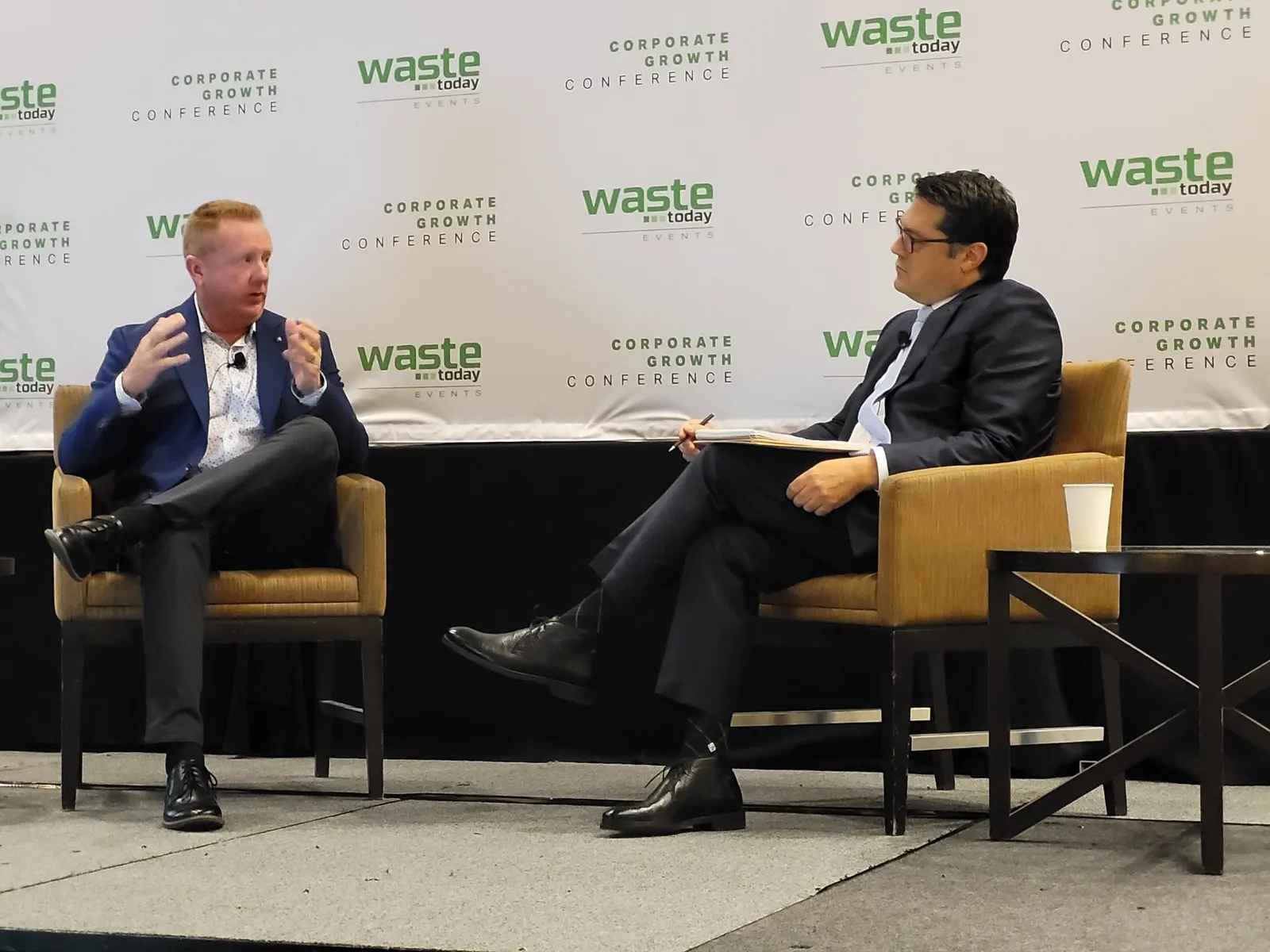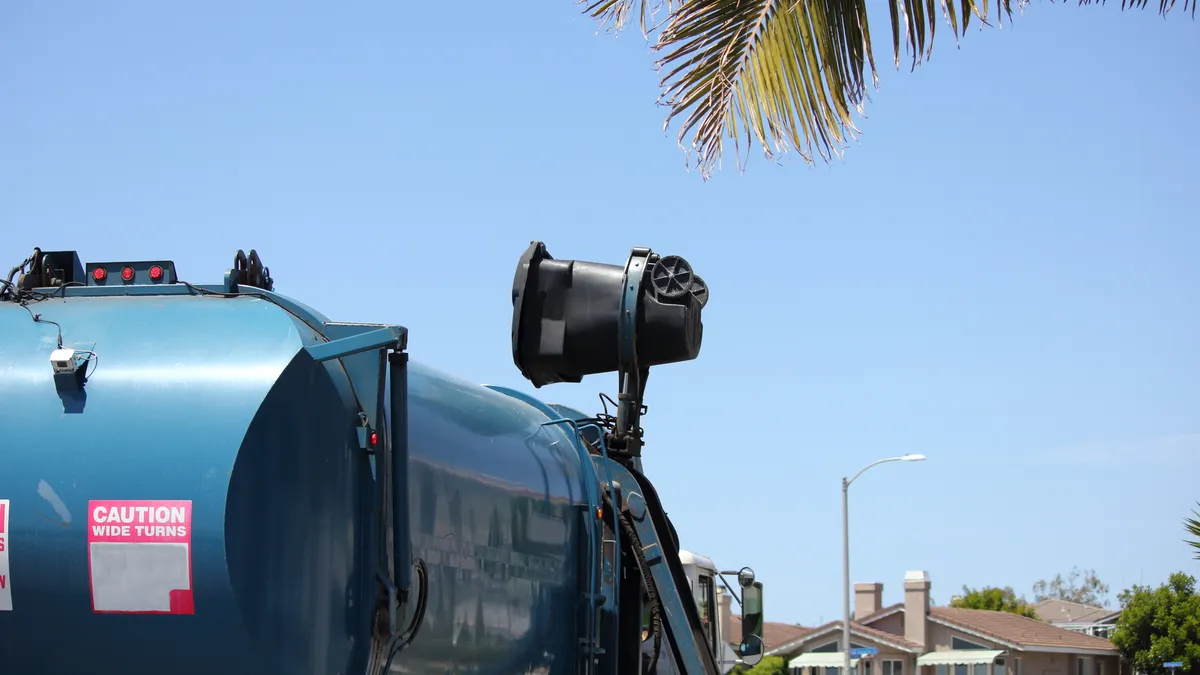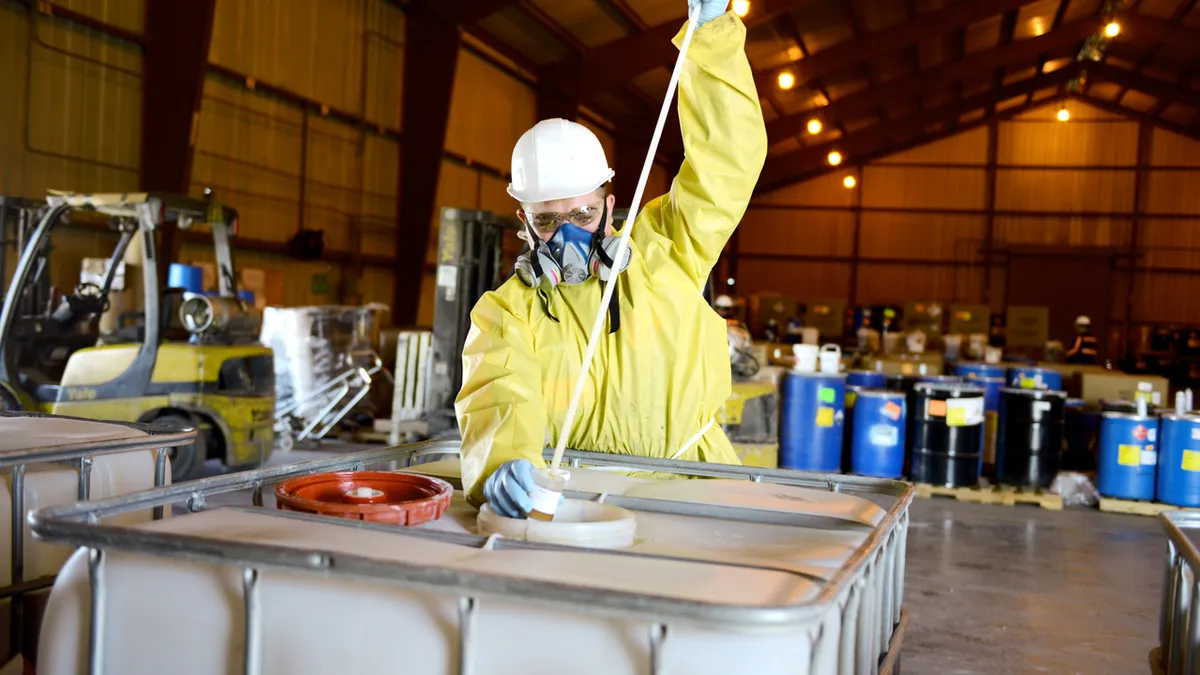The sheer volume of M&A activity may have eased this year, but many of the same factors that drove industry consolidation in recent years remain in play and well-capitalized buyers are expected to stay active.
2023 spending levels are on track to be robust, even if they don’t hit the records of some recent years that were influenced by corporate tax cuts, the pandemic and other factors. The sector’s five main publicly traded companies have spent nearly $3 billion on acquisitions in the U.S. and Canada through Q3, with more expected in Q4. Numerous deals involving private equity firms and infrastructure funds have also occurred.
“’21 and ‘22 are the absolute peak in dollars spent,” said Michael E. Hoffman, a managing director and group head of diversified industrials research at Stifel. "It's settling back down. ‘23 is still going to be greater than the underlying organic growth of the industry, but I think we're headed back towards a pace that looks more like it's about the normal, rational turnover. "
Leon Vayntraub, a director at Raymond James, said at this month’s Corporate Growth Conference in Chicago that his firm is still observing “a lot of interest” and “a lot of desire to deploy capital.”
"When it's all said done we think [2023] will have eclipsed 2021 levels, probably not have reached 2022,” he said.
Unlike prior years, there hasn’t been one unique factor influencing sellers, such as concerns about a change in capital gains taxes. Instead, companies are selling for evergreen reasons — succession planning, labor and equipment challenges, or other forms of competitive strain.
"In this market, high-quality companies are selling at attractive valuations. Lower quality businesses, not as much. But the acquisitive businesses have remained acquisitive,” said Scott Sergeant, a managing director and head of the environmental and industrial services investment banking practice at Houlihan Lokey.
In some cases, Comerica Bank’s Joe Ursuy said some of his clients weren’t planning to sell but received an attractive unsolicited offer this year. Others may be faced with a need to get increasingly creative around managing their fleets at a time of limited inventory.
Ursuy, executive vice president of national and specialty businesses at Comerica, said “the industry has done a really good job mitigating inflationary issues over the past few years, really by pushing price.” Smaller companies that work with Comerica have followed the lead of industry majors in this area. And while the economy could be on track to avoid a recession, uncertainty remains.
"If you were thinking about, ‘Maybe I should sell now or I'm going to wait two years,’ it might be more attractive to do it now,” said Ursuy, noting that the reverse could also be true. “Every company is in a different part of its lifecycle.”
‘Powerball’ valuations and rising rates
The past few years have also seen a more complex financial equation, with rising valuations and rising interest rates. Earlier in the year — due to ongoing rate hikes, lingering pandemic labor issues and the spring banking crisis — certain types of deals saw less activity.
“Sellers were on the sidelines at the beginning of the year, probably largely just due to perception,” said Anthony DiIenno, founder and CEO of A.D. Advisors, who consults on deals for smaller clients in the recycling, broker and pallet sectors. Now, as inflation eases, DiIenno said “I think sellers are accepting a new reality” and are realizing "some of the Powerball valuations are not realistic.”
While the industry’s largest companies are less affected by the high interest rates, they must contend with sellers’ expectations of higher valuations for their businesses.
Hoffman said the "top ends of valuations are coming in" and "interest rates clearly have an impact on that.”
Sergeant said it can take time for sellers’ expectations to adjust accordingly, but he has still seen plenty of motivated sellers that are looking to exit for the usual reasons such as tougher operating conditions or increasing competition on technology spend. Such factors, he said, are "making it harder for smaller operators to thrive and so they're willing to transact."
Another potential effect of the higher rate environment is that it could be limiting the ability of some smaller or regional companies, depending on their bank debt structure, to grow through their own acquisitions.
If the company is locked in with a traditional fixed rate loan at lower rates that may have been set in 2020 or 2021, then they aren’t in a position to reprice at the current, higher rates with a new bank. While this is not a major trend, Ursuy said it is a factor that should resolve itself within the next couple years as most of these deals had five-year maturities.
Evolving buyer landscape
While there has been some discussion about whether complex debt markets or higher interest rates slowed down activity by private equity and infrastructure firms this year, sources say overall that has not been the case.
“If they're slowing down, it's not because there's a lack of appetite. It may be that their book is at the moment full or the things they're looking for, they haven't found it,” said Hoffman. “But the ones I know are actively still in the hunt."
This summer, a Macquarie Infrastructure Partners fund acquired Florida-based Coastal Waste & Recycling (which Houlihan Lokey advised on), in an example of a platform-scale deal. The sector has also seen plenty of other transactions involving such buyers at various scales. These buyers are becoming increasingly comfortable taking minority stakes in businesses, which in the past had not always been common for certain entities.
As an example, Houlihan Lokey advised on the recent recapitalization of New Jersey-based Interstate Waste Services in which Ares Management took a minority role and existing investors such as Littlejohn & Co. stayed in. This has also happened with smaller companies throughout the year.
This can be attractive to owners of quality companies that may not be able to get the highest valuation today, said Sergeant, because "they can do a deal, bring in some equity capital and still have a meaningful second bite at the apple." He also noted this happening in other sectors, such as engineering and consulting.
Sources say the willingness to pursue different deal structures is also a recognition that there just aren’t as many platform-sized targets available. This affects the strategy for all buyers, including major companies.
"There are less platforms trading on a relative basis and it's a lot more about tuck-ins,” said Hoffman.
A more stringent approach to antitrust under the Biden administration has also limited the ability for major companies to do such platform deals.
Waste Connections CEO Ron Mittelstaedt, speaking at the Corporate Growth event, said that “[Hart-Scott-Rodino] standards under the Biden administration are getting very difficult for all industries” and may become even more so if a proposed update takes effect next year. Mittelstaedt estimated that costs for outside counsel and related fees could increase by at least a factor of three and the time to close a deal could potentially triple.
That, combined with the rising role of PE and infrastructure funds, could mean some of the larger private companies get further involved in acquisitions.
“Almost every single one of these companies has taken external capital in the last two or three years,” said Vayntraub, who said that he expects these regional companies are "going to play a bigger role in consolidation going forward.”

Looking into 2024
Sources expect it will remain challenging for new entrepreneurs to break into the space at scale unless they have significant financial backing. It’s still considered feasible to take the traditional path of starting a small roll-off company with a handful of used trucks, but it’s not as easy as it used to be due to higher interest rates. For those that do have financing, sources say the best move might be to acquire a small company with employees and equipment first.
These factors have also contributed to heightened consolidation within the environmental services sector, where companies handle industrial and hazardous waste. Sergeant noted his firm has been involved in multiple deals this year, such as Heritage-Crystal Clean getting taken private and infrastructure fund-backed companies such as Covanta and VLS Environmental Solutions expanding through acquisitions.
The volume of such deals has been somewhat lower this year, but sources expect to see more ahead. Sergeant said last year’s acquisition of US Ecology by Republic Services continues to have ripple effects.
"That has triggered other activity and interest in continuing to consolidate the hazardous/industrial waste sector that I would expect to see continue,” he said.
Republic has possible environmental services deals in the pipeline, though none have closed this year, and other companies could also become more active in this area.
"I think there's no question you'll see more activity next year,” said Hoffman. “I don't think there's anything big and chunky, though."
On the recycling side, improving commodity price trends could help boost companies looking to sell their assets next year, said DiIenno. The broker space also still has plenty of opportunity for consolidation, as seen with this year’s merger between Keter Environmental Services and Waste Harmonics.
"We're seeing a real change over the past 60 days,” he said, in terms of general activity. "I think the pace is going to pick up significantly."
Overall, the true boom period for waste industry M&A may have peaked. However, with an estimated $35 billion of the $90 billion U.S. solid waste market controlled by private companies, according to Hoffman, there are still plenty of opportunities.
As noted by Mittelstaedt, the type and scale of these deals may just look different going forward. He said the pending federal antitrust rules could possibly bode well for major companies, like Waste Connections, that have already consolidated disposal assets. Now, major companies are becoming more focused on acquiring companies with collection, transfer or MRF assets that can bolster their vertically-integrated positions.
"There are less than 20 private [MSW] landfills that are material in their markets in the entire United States,” said Mittelstaedt, adding that this makes it “almost impossible for someone to come along and create the next very large company, particularly if it has disposal.”
Katie Pyzyk, a reporter at Packaging Dive, contributed to this story.



















